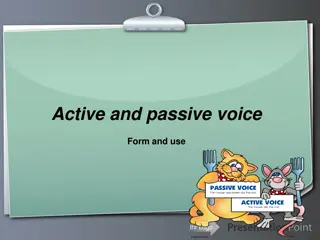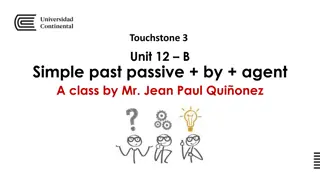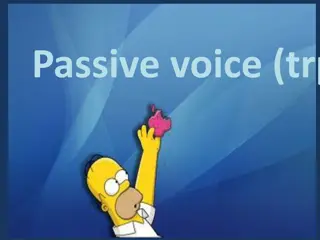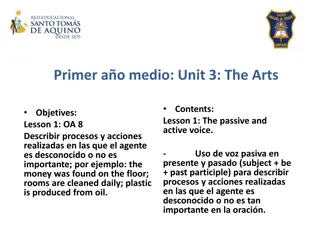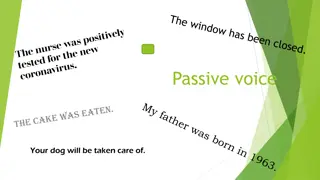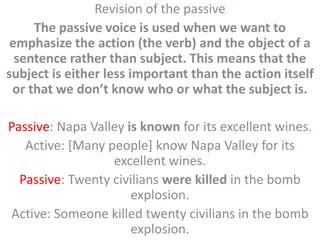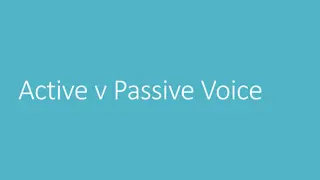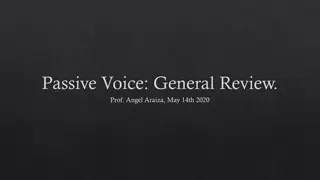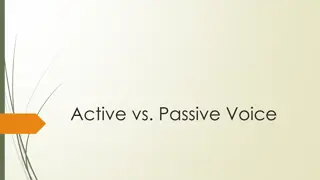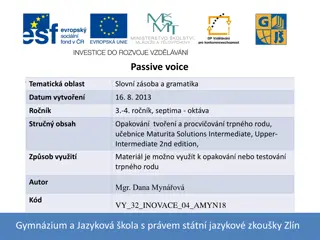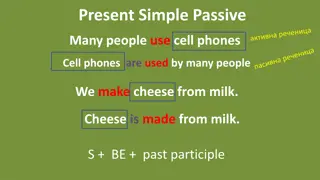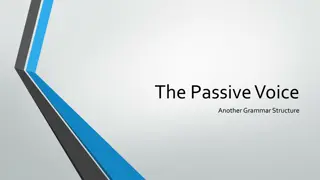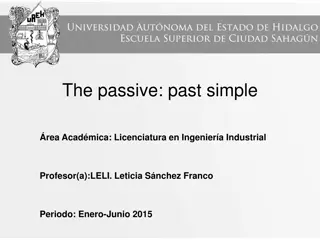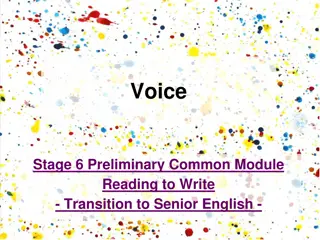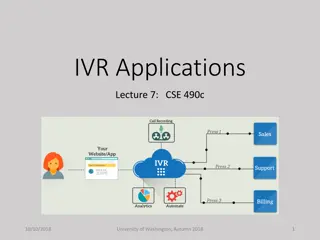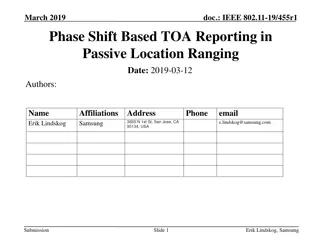Understanding Passive Voice in English Grammar
Passive voice in English occurs when the subject receives the action of the verb. This involves changing the order of subject and object, using the auxiliary verb "to be" in the tense of the active voice, and adding the past participle of the main verb. Various tenses can be used in passive voice constructions, such as present simple, past continuous, future perfect, and modal perfect. Mastering passive voice is crucial for effective communication in English.
Download Presentation

Please find below an Image/Link to download the presentation.
The content on the website is provided AS IS for your information and personal use only. It may not be sold, licensed, or shared on other websites without obtaining consent from the author. Download presentation by click this link. If you encounter any issues during the download, it is possible that the publisher has removed the file from their server.
E N D
Presentation Transcript
PASSIVE VOICE By: Asst.Prof. Muayad R. Habib / Dept. of English / English Grammar / All First Year Students / College of Basic Education / Al- Mustansyria University / Apr. 2020
What is PASSIVE VOICE ? A sentence in the passive voice when the subject receives the action of the verb. The agent , or subject of the sentence , is sometimes not mentioned and must be referred: The rooms were cleaned completely by the girls. The garage is being washed by Mr. Brown.
Important Steps : 1. We must change the order of subject and object . 2. We must add the auxiliary verb to be in the tense of the active voice . 3. We must add the past participle of the main verb. SUBJECT + VERB + TO BE + PAST PARTICIPLE
POSSIBLE TENSES USED . TENSE ACRIVE VOICE PASSIVE VOICE PRESENT SIMPLE PRESENT CONTINUOUS PAST SIMPLE PAST CONTINUOUS PRESENT PERFECT We have spoken English. PAST PERFECT FUTURE SIMPLE FUTURE BE GOING TO MODALS MODAL PERFECT We speak English. We are speaking English. We spoke English. We were speaking English. English is spoken. English is being spoken. English was spoken. English were being Spoken. English has been spoken. English had been spoken. English will be spoken. English is going to be spoken. English can be spoken. English can have been spoken. We had spoken English. We will speak English. We are going to speak English. We can speak English. We can have spoken English.






